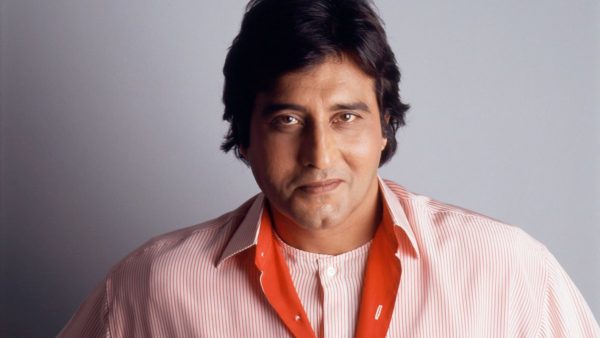Born in a Punjabi family to Kamla and Kishanchand Khanna, a textiles, dyes and chemicals businessman in Peshawar, Vinod Khanna’s family moved to Bombay when India was partitioned.
A villain, a star, a sanyasi and a politician, Vinod Khanna, also known as “the monk who sold his Mercedes” and Swami Vinod Bharti, today succumbed to cancer at the age of 70.
Born in a Punjabi family to Kamla and Kishanchand Khanna, a textiles, dyes and chemicals businessman, in 1946, in Peshawar, British India (now in Pakistan), his family moved to Bombay when India was partitioned.
“We reached Bombay, where my father had an office. Initially, we stayed with friends and relatives. I was a good student and a favourite with the teachers. In 1957, when I was in class VI, we moved to Delhi,” Khanna had revealed in an old interview in 2002.
While at the boarding school, he fell in love with motion pictures after watching Mughal-e-Azam. After graduating from Sydenham College with a commerce degree, he embarked on his movie career.
Considered as one of the best looking actors in Bollywood, Khanna became popular with the audience and featured in innumerable lead roles. But his love for spirituality soon made him lose his superstardom to Amitabh Bachchan.
Talking about the era when he left the B-Town, Khanna had said, ‘‘I have always been a seeker. In the film industry, I had money, glamour, fame but wondered now what? Initially, I visited Osho’s ashram in Pune every weekend. I even diverted shooting schedules to Pune. I was finally initiated on December 31, 1975. When I announced my retirement from films, nobody believed me.”
Detailing his stint as sanyasi, he had noted, ‘‘I was Osho’s mali: I am one of the few Indians to have stayed with Osho in Rajneeshpuram, the city he built in America. I spent four years with Osho. I was his gardener, I cleaned the toilets, I did the dishes, and his clothes were tried out on me because we were, physically, of the same stature.’‘
Talking about the end of his spiritual break, Khanna continued, “I went back to Bollywood. Returning to the movies was the easy part. It was leaving my guru in America which was an almost-impossible decision so much attached was I to Osho. He asked me to run the Puna ashram, but I said no. That is the most difficult no I have ever said in my life.’‘
Here are some more lesser-known facts about his life:
1. Before he became popular for the cop roles, Khanna, who is known for his distinct style and persona, made quite an impression as a scowling dacoit in many flicks.
The ‘villain-turned-hero,’ who debuted in Sunil Dutt’s 1968 film Man Ka Meet as a villain, played supporting or low-down characters in the films such as Purab Aur Paschim, Sachaa Jhutha, Aan Milo Sajna and Mastana in 1970 and Mera Gaon Mera Desh and Elaan in 1971.
2. For Mera Gaon Mera Desh (1971), Dharmendra revealed, that Khanna literally bled to infuse realism into the role.
. Khanna finally got the opportunity to expand his repertoire when Gulzar noticed his ability to meld brute force with emotional vulnerability and cast him in leading roles in Mere Apne (1972) and Achanak (1973).
4. In the songless Achanak (1973), he won rave reviews for his performance, wherein he had to kill his adulterous wife.
5. He attempted risky, offbeat roles too. He broke the taboo about lovemaking in Aruna Vikas’ Shaque (1976), while his mature and complex performance as a murder suspect in the movie was lauded.
6. Between 1971-1982, the actor starred in 47 multi-hero films like Ek Aur Ek Gyarah, Hera Pheri, Khoon Pasina, Amar Akbar Anthony, Zameer, Parvarish and Muqaddar Ka Sikandar.
7. Reportedly, Khanna had landed the Qurbani role in 1980 after Amitabh Bachchan refused it. The film later became the highest-grossing film of that year.
8. Khanna became the first B’Town hero to retire from the films when he was at his peak. His search for spiritual satisfaction took him to Osho.
He became a disciple of Osho (Bhagwan Shree Rajneesh) in 1975 and in the early 1980s, he shifted to Rajneeshpuram in the US, where he spent his time cleaning dishes and working as Osho’s gardener.
9. After joining the Bharatiya Janta Party (BJP) in 1997, the ‘abhineta-turned-neta’ proved his mettle in politics too. He represented Punjab’s Gurdas Parliamentary seat four times in the Lok Sabha and became the Minister of State for External Affairs in the National Democratic Alliance (NDA) government led by former prime minister Atal Bihari Vajpayee.



Leave a reply